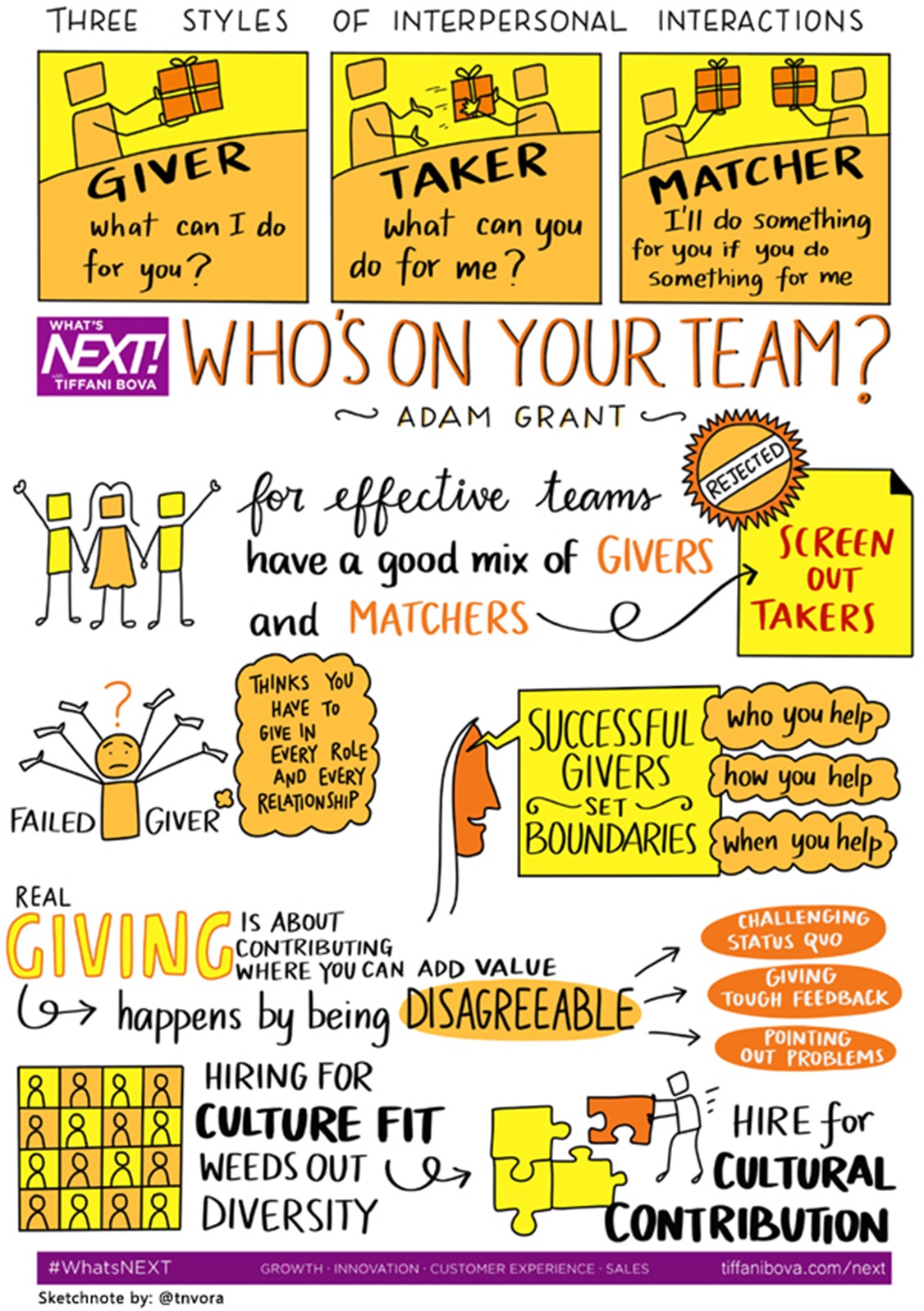The Art of Successful Giving: Adam Grant
Tanmay Vora
I created a series of sketch notes for Tiffani Bova’s “What’s Next” podcast where she meets brilliant people to discuss customer experience, growth and innovation. Tiffani Bova is a Global Customer Growth and Innovation Evangelist at Salesforce. I will post sketchnote versions of selected podcast episodes that enlightened me. Tiffani is also the author of a WSJ bestseller book “Growth IQ: Get Smarter About the Choices that Will Make or Break Your Business”
We don’t accomplish anything meaningful in isolation. We have to interact and work with other people to get anything significant done. And our approach to these interpersonal interactions play a huge role in our ability to focus, work and add value.
Too often, we often see people who are generous with how much they share with others without any expectation, people who wait to get something first before they start giving and people who simply use other people’s skills and approaches to get their own work done.
In this episode of What’s Next podcast with Tiffani Bova, Adam Grant shares his insights on successful giving. He outlines three styles of interpersonal interactions in teams and organizations – giving, taking and matching. Here’s what they look like:
-
Givers: “What Can I do for you?”
-
Takers: “What can you do for me?”
-
Matchers: “I’ll do something for you if you do something for me”
Earlier in my career, I often ended up doing other people’s job simply because they delegated their work to me as my seniors. Over a period of time, I had to learn to say no and set boundaries (and the truth is I still find it difficult to say no sometimes). If I timidly served all requests that I got, I would have spread myself thin accomplishing things for others but not for the purpose I was serving.
I did not want to be a failed giver who thinks they have to give in every role and relationship.
Adam Grant mentions that that successful givers set boundaries on who they help, how they help and when they help and focus on giving where they can add maximum value.
What resonated with me the most was that successful giving is not about being nice and agreeable all the time. In fact, as Adam points out, successful giving (and adding real value) happens by being disagreeable, challenging the status quo, giving tough feedback and pointing out problems.
Effective teams, he says, is a combination of givers and matchers where as takers suck the energy out of the team and they should be screened out.
Do check out the full podcast episode here for more ideas. Here is a sketch note summary of some of the key insights.
Other Sketchnotes from WhatsNext Podcast:
- Technology and Being Human: Arianna Huffington
- Building a Culture of Excellence: Tom Peters
- On Disrupting Yourself: Whitney Johnson
- Storytelling in Business: Nancy Duarte
- The Human Side of Business: Seth Godin
